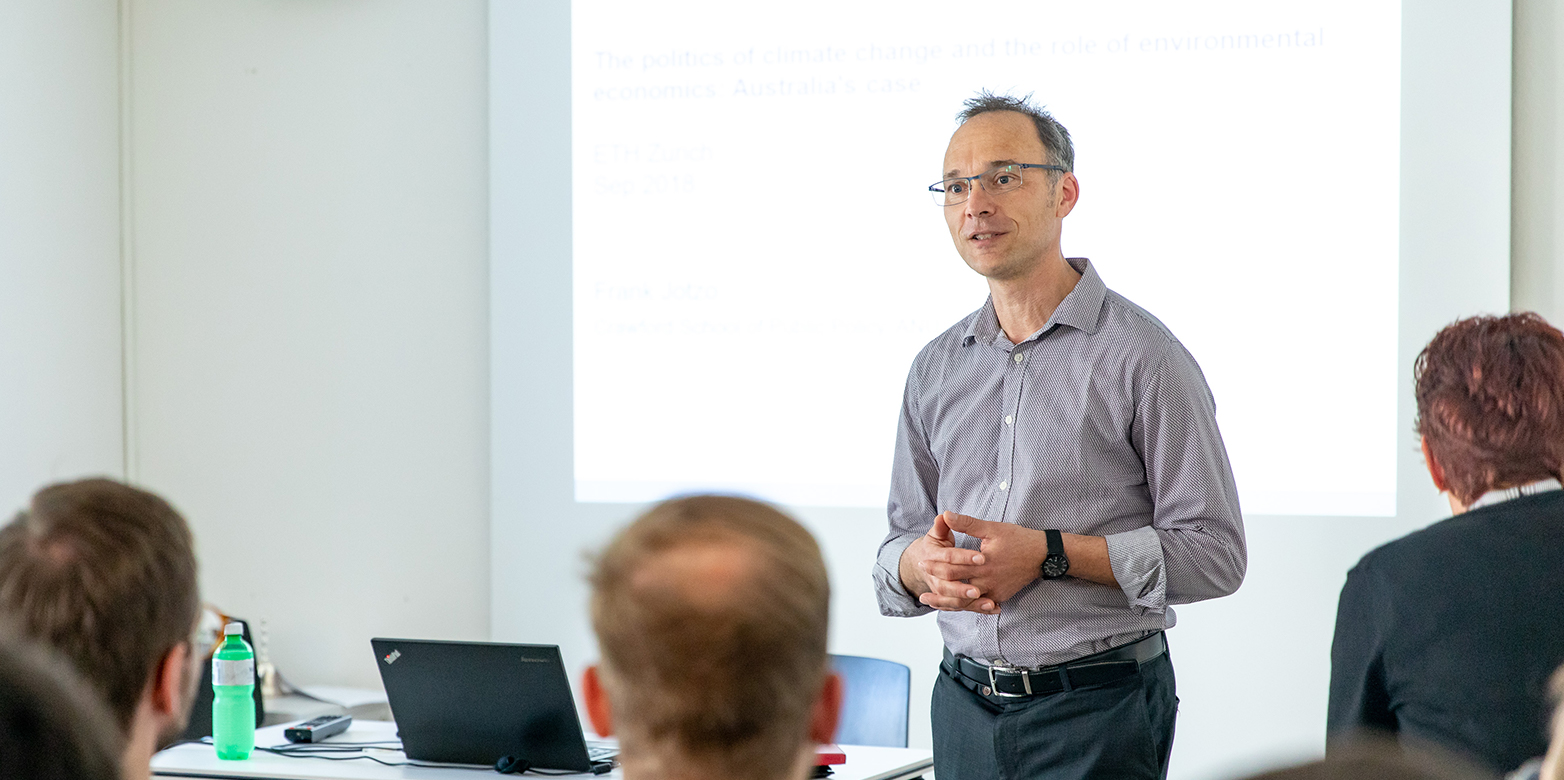The politics of climate change and the role of environmental economics: Australia's case
Prof. Frank Jotzo of ANU (Australian National University) Crawford School of Public Policy visited ISTP on September 20, 2018 to talk about the recent history of Australian climate change policy and the politics surrounding it. He also presented results from ongoing research on the energy transition away from coal to renewable energy sources.
by Björn Lalin

Prof. Jotzo started his talk by introducing us to the status quo of Australian political debate, where energy transition and climate change are at the very top of the political agenda: Australia has seen 6 prime ministers in the last 11 years, which to a large extent can be attributed to climate change policy.
Australia is the largest exporter of coal power in the world. But it also has great potential for deployment of solar and wind power, as well as a large agricultural industry which would be severely impacted by the effects of climate change. Thus, there is a general awareness and strong public support for climate change policy in Australia.
Prof. Jotzo continued by giving us an overview of relevant policy instruments. In particular he described the Emission Trading Scheme (ETS), which was proposed by the Labor party over a decade ago, abolished, and recently brought back to the table again, as well as the political powerplay, which has surrounded it in the last decade.
Among policy analysts and based on economic analyses the way forward seems clear: the transition away from coal is inevitable. The global coal usage is set to plateau and decline, domestic usage is on the decline and ageing coal plants are being phased out and replaced by renewable energy.
Despite this, the political debate is still going on and the risk of a prolonged stalemate is real. It seems that the communication towards the public has been unsuccessful.
Australian households rely on energy for climatization, heating and transportation, and are sensitive to energy prices. A majority of citizens believe that a transition away from coal power would impact them negatively, when in fact the opposite is true: The proposed (and very carefully crafted) policies from the last decade would have resulted in a net benefit for most citizens, through lowered income taxes, increased welfare payments, and other compensating actions.
The Q&A session following the talk sparked the debate around issues which are still open. Questions concerning stability of the energy supply were discussed at some length, as well as that the cause of the stalemate seems to be one of political and cultural nature.
We would like to thank Prof. Jotzo for his visit and hope to welcome him back soon again.
To get a broadened sense of the ISTP and our topics of interest and past seminars visit our Colloquium page.